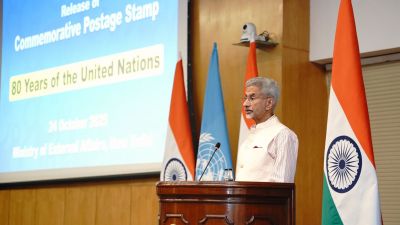Karmapa will `most probably’ be allowed to stay in India
NEW DELHI, MARCH 8: The Dalai Lama has said that the Indian government has "informally, unofficially" indicated to him that Karm...

NEW DELHI, MARCH 8: The Dalai Lama has said that the Indian government has "informally, unofficially" indicated to him that Karmapa Lama, who recently fled from Tibet to India, would "most probably" be allowed to remain in this country.
"The formal response has not yet come but informally, unofficially, some of my old friends in the Ministry of External Affairs have indicated that the Karmapa will most probably be allowed to remain in this country," he said when asked about the response from the government to Karmapa Lama’s request to stay and study in India.
In an interview to Karan Thapar for BBC programme `HardTalk – India’ to be telecast on Saturday next, Dalai Lama said India’s policy regarding China in general and the Tibet issue in particular was "overcautious".
"I sometimes directly express this to my friends in the Ministry as well as some ministers also. Their position or attitude is a little over-cautious. There’s too much sensitivity or caution but, okay, that’s understandable," he said.
Dalai Lama said he was "fully convinced" that Karmapa Lama was not a Chinese "stooge" and described him as "very sincere".
"My judgement is also based on his behaviour or mental attitude in the last few years in Tibet. The Tibetan public, particularly in the Lhasa area, have witnessed the young Karmapa as very tough and very spiritual-minded," he said.
Asked about the impact on his relationship with the Indian government if it refused permission to Karmapa to stay, the Tibetan spiritual leader said though many Tibetans would be "gravely disappointed" and such a decision would be "morally wrong", India "has provided us the maximum help in spite of their own difficulties".
To a question on the response of Beijing to the situation in Tibet, he said the Chinese authorities "lack courage or political will to address the reality. That’s the problem."
"Their whole thinking, their whole policy, is not rational. Their whole policy relies on using force. Their top priority is stability and unity but because their method is force and telling lies in reality it’s counter-productive," he said.
Dalai Lama claimed that Chinese intellectuals had increasingly started supporting the Tibetan cause. "Chinese intellectuals and the Chinese public, at least those who are aware of the true situation are giving us more support and sympathy."
"Therefore, I feel that even though there is a totalitarian government the times are changing and one day they have to face reality," he said.
Asked whether the Tibetan struggle would die with him, the spiritual leader said "that’s a totally mistaken concept. The Tibetan issue is not a Dalai Lama issue or an issue of one person or one institution or one generation …. The Tibetan spirit will remain but what method we follow that’s up to them (the future generation of Tibetans)."
He said once the Tibetan people returned to their homeland, he would hand over "all my legitimate authority to the local Tibetan government" which should "eventually be an elected democratic government".
On himself, Dalai Lama said "I introduce myself as a simple Buddhist monk no more no less and a very very normal human being."





- 01
- 02
- 03
- 04
- 05


























